 |
Although we are using this website to present all course materials, much of the course will be run using Canvas, including assignment submissions, Panopto recordings, and the gradebook. |
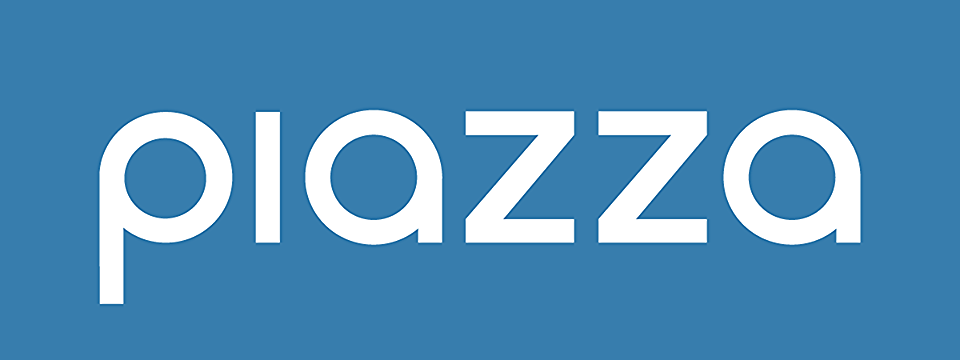 |
We will use Piazza as our discussion forum. This is an invaluable resource to ask and answer questions. Additionally, all important course announcements will be made here. Be sure to join: https://piazza.com/washington/spring2017/cse120. |
 |
During lectures, there will be peer instructions questions that will allow you to discuss course material with your neighbor(s) and then vote. The polling system we will use is Poll Everywhere, which is free to use for UW students and accesible with any Internet-enabled device. Optionally, you can download their mobile app here. The URL for all polls for the quarter will be: https://pollev.com/justinh. |
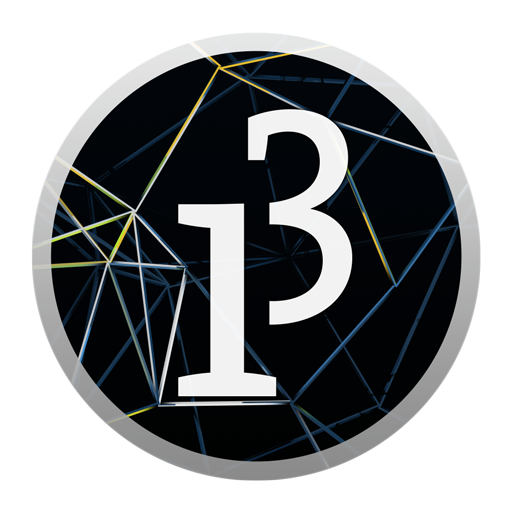 |
Our programming language for this course! Freely available online at: processing.org. The latest version at the start of the Sp17 quarter is version 3.3. |
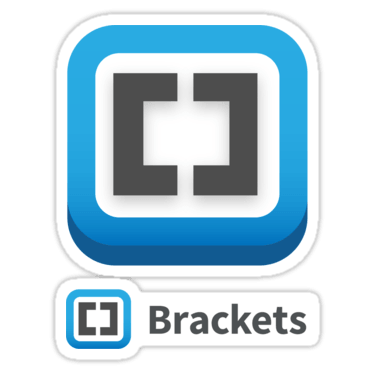 |
Feel free to use your text editor of choice, but we will be using Brackets for in-class demos. Freely available online at: brackets.io. |
| Feel free to use your file transfer protocol (FTP) program of choice, but we will be using Cyberduck for in-class demos. Freely available online at: cyberduck.io. |
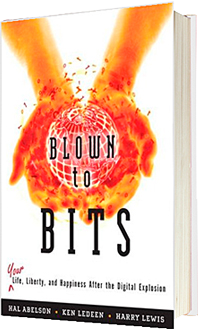 |
We will assign readings from Blown to Bits: Your Life, Liberty and Happiness After The Digital Explosion by Hal Abelson, Ken Leeden, and Harry Lewis. Available online at this link, or a physical copy can be purchased for < $25. |
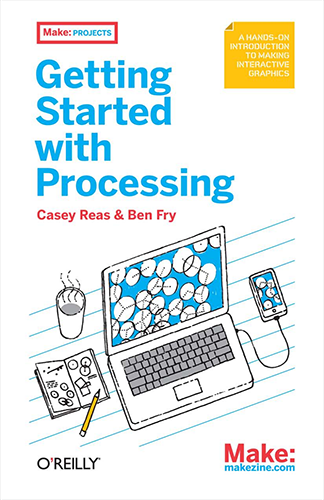 |
(Optional) One good Processing reference that we recommend is Getting Started with Processing by Casey Reas and Ben Fry. The 2nd edition is available online at this link. The 3rd edition can be purchased for < $20. |
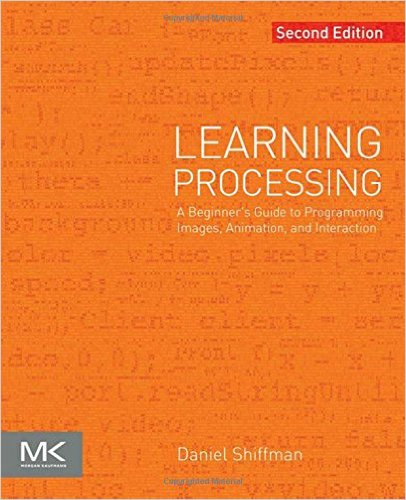 |
(Optional) Another good Processing reference that we recommend is Learning Processing by Daniel Shiffman. This book covers a lot more programming that we will have time for, but will come in handy if you decide to dive deeper into programming in Processing. Can be purchased for ~ $45. |
We will be using MGH 030 and MGH 044 this semester. While these contain labs contain computers, you are welcome to bring your laptops if you would prefer. You will be expected to work on assignments outside of the scheduled lab sections.
CS Principles has a wide variety of course components and they all contribute towards your overall success:
Your grade in the class will be broken into the following components:
| Assignment | Percentage of Grade |
| EPA: Effort, Participation, and Altruism | 5% |
| Programming Assignments and Portfolio | 40% |
| Written Assignments and Reading Quizzes | 15% |
| Exams (Midterm and Final) | 20% |
| Final Project | 20% |
You can earn points for each of the following:
Effort: Attending office hours, lecture, and sections. Keeping up with Piazza.
Participation: Asking questions in lecture and Piazza, interacting with TAs
and other students in discussion, voting on peer instruction questions.
Altruism: Helping others in section and on Piazza.
EPA scores are kept internal to the course staff (i.e. not disclosed to students).
As you may have noticed in the "Participation" section of EPA, you will receive credit for voting on peer instructions questions in lecture (your answer does not need to be correct). This is designed to give you a chance to check your understanding of the material by applying it on-the-spot as well as a chance to interact with your classmates. Over the course of the quarter, you will be allowed to miss "a handful" of lectures with no penalty.
Late work is not accepted except under special circumstances. If you need to turn in an assignment late due to special circumstances, please email the instructor to schedule a meeting in which to discuss and determine if extra time is needed.
All work in this class must be your own, unless otherwise specified (e.g. partner projects). All of it. DO NOT COPY! Computers make it trivial to copy digital information -- it's an important source of their power. Computers make it trivial to find copying. Penalties are high. Knowing violations of the principles of academic conduct, privacy, or copyright (outlined below) will result in University disciplinary action under the Student Code of Conduct.
The essence of academic life revolves around respect not only for the ideas of others, but also their rights to those ideas. It is therefore essential that all of us engaged in the life of the mind take the utmost care that the ideas and expressions of ideas of other people always be appropriately handled, and, where necessary, cited. For writing assignments, when ideas or materials of others are used, they must be cited. The format is not that important -- as long as the source material can be located and the citation verified, it's OK. What is important is that the material be cited. In any situation, if you have a question, please feel free to ask. Such attention to ideas and acknowledgment of their sources is central not only to academic life, but life in general. Please acquaint yourself with the University of Washington's resources on academic responsibility.
All of the expressions of ideas in this class that are fixed in any tangible medium such as digital and physical documents are protected by copyright law as embodied in title 17 of the United States Code. These expressions include the work product of both: (1) your student colleagues (e.g. any assignments published here in the course environment or statements committed to text in a discussion forum); and, (2) your instructors (e.g. the syllabus, assignments, reading lists, and lectures). Within the constraints of "fair use," you may copy these copyrighted expressions for your personal intellectual use in support of your education here in the UW. Such fair use by you does not include further distribution by any means of copying, performance, or presentation beyond the circle of your close acquaintances, student colleagues in this class and your family. If you have any questions regarding whether a use to which you wish to put one of these expressions violates the creator's copyright interests, please feel free to ask the instructor for guidance.
To support an academic environment of rigorous discussion and open expression of personal thoughts and feelings, we, as members of the academic community, must be committed to the inviolate right of privacy of our student and instructor colleagues. As a result, we must forego sharing personally identifiable information about any member of our community including information about the ideas they express, their families, lifestyles, and their political and social affiliations. If you have any questions regarding whether a disclosure you wish to make regarding anyone in this course or in the university community violates that person's privacy interests, please feel free to ask the instructor for guidance.
The Disability Resources for Students (DRS) is a unit within the Division of Student Life and is dedicated to ensuring access and inclusion for all students with disabilities on the Seattle campus. They offer a wide range of services for students with disabilities that are individually designed and remove the need to reveal sensitive medical information to the course staff. If you have a medical need for extensions of exam times or assignment deadlines, these will only be granted through official documentation from DRS. Browse to this link to start the process as soon as possible to avoid delays.
We recognize that our students come from varied backgrounds and can have
widely-varying circumstances. If you have any unforeseen or extenuating
circumstance that arise during the course, please do not hesitate to contact
the instructor in office hours or via email or private Piazza post to discuss your situation.
The sooner we are made aware, the more easily these situations can be resolved.
Extenuating circumstances include work-school balance, familial
responsibilities, religious observations, military duties, unexpected travel,
or anything else beyond your control that may negatively impact your
performance in the class.
Additionally, if at any point you are made to feel uncomfortable, disrespected,
or excluded by a staff member or fellow student, please report the incident so
that we may address the issue and maintain a supportive and inclusive learning
environment. Should you feel uncomfortable bringing up an issue with a staff
member directly, you may consider sending anonymous feedback
or contacting the Office of the Ombud.